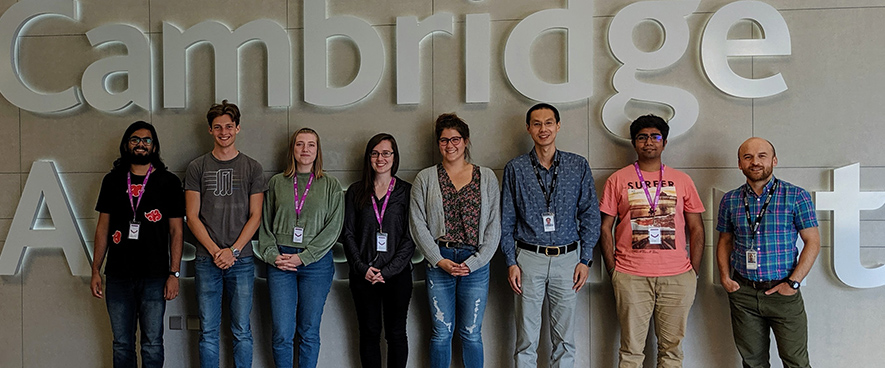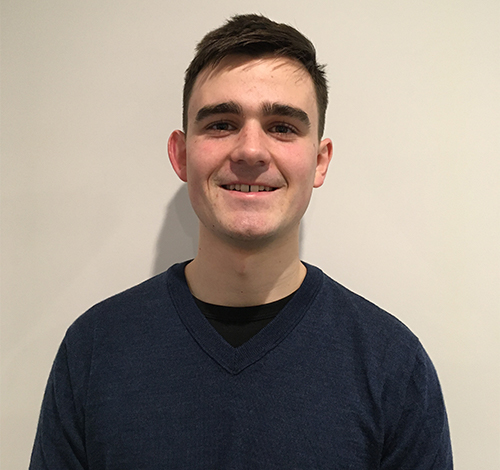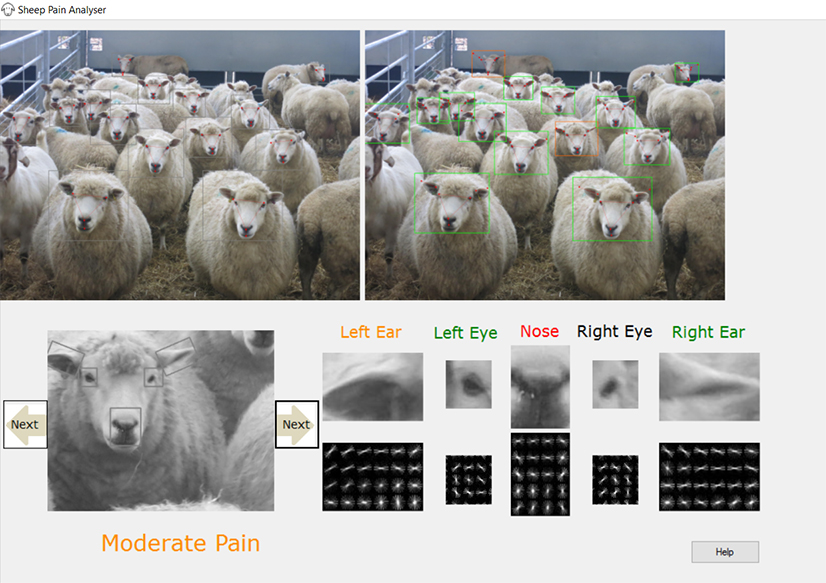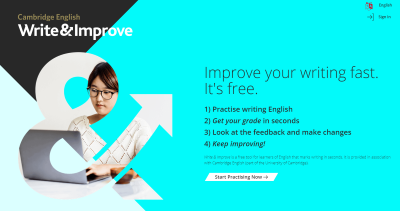
Submitted by Rachel Gardner on Tue, 27/04/2021 - 14:40
An internship scheme here that allows undergraduates to put theory into practice, develop valuable skills, and discover unexpected research interests and/or career paths, will get underway again in June.
The Undergraduate Research Opportunities Programme (UROP) runs annually. It gives Cambridge students the chance to intern in University research labs during the summer. There, as well as learning about the research being carried out, they can develop useful technical and transferable skills and new areas of interest. And this can be life-changing.
"My internship was possibly the most valuable thing I did at Cambridge, both in figuring out what I wanted to do with my career and in building the skills, experience and confidence to go for it."
Elliot Ford
 "My UROP was possibly the most valuable thing I did at Cambridge," says graduate Elliot Ford (pictured right) who did a UROP with the Natural Language Processing & Information group in 2016. "It helped me both in terms of figuring out what I wanted to do with my career, and also in building the skills, experience and confidence to go for it."
"My UROP was possibly the most valuable thing I did at Cambridge," says graduate Elliot Ford (pictured right) who did a UROP with the Natural Language Processing & Information group in 2016. "It helped me both in terms of figuring out what I wanted to do with my career, and also in building the skills, experience and confidence to go for it."
Third-year undergraduate Anish Das says: "My internship sparked a love for Natural Language Processing and also – having seen how research is conducted – it has undoubtedly put a career in academia on the horizon for me."
"It's where I met my colleagues"
Meanwhile graduate Ane Espeseth says: "My UROP impacted on my work, both academically and vocationally. It gave me a chance to get familiar with tools I later made use of in my dissertation, gave me practice in writing and presenting academic work – and it is also where I met my current colleagues at Cambridge Assessment English."
Emma Flint did her UROP alongside Elliot Ford and they worked together to create and publicly release a system for converting non-standard words (such as dates, abbreviations, URLs and hashtags) into standard words capable of being read by a text-to-speech systems or for use in other downstream applications.
As part of the UROP they authored a paper "that was presented at the 3rd Workshop on Noisy-User Generated Text at EMNLP 2017 in Copenhagen. This equipped with me the skills to analyse existing research," she says, "academic writing, and presentation."
"I built up my programming skills"
It also gave her other valuable skills. Emma says: "Prior to the internship, I had had minimal programming experience, but during it I learnt how to use the command line, how to write basic code in Python, and how to use GitHub. These were vital skills that helped my employability/confidence working at a tech company."
After graduating, Emma joined Amazon Alexa in Cambridge working as a Knowledge Engineer, primarily working on building features to improve Alexa’s ability to answer factual questions (e.g. 'What is the capital of France?'). She has since become a Technical Product Manager, building tools for developers working with Alexa.
Elliot too says the UROP boosted his programming ability. "It built up my programming skills as well as my confidence in them," he says. "This played a big part in me believing I could use my programming skills in my career straight out of my undergraduate degree."
On graduating, Elliot went to work for Amazon on Alexa for two and a half years (first as a Knowledge Engineer and then as a Research Scientist), before moving to AstraZeneca as a Natural Language Processing Engineer in 2020.

"I'm now doing a PhD"
Not all UROP interns end up in industry. As a result of his UROP, Anish Das says his career choices now include a potential career in academia. And student Yiting (Edie) Lu followed up her UROP by deciding to pursue a PhD.
An Engineering student, she came to this Department at the end of her second year to work on a project using machine learning-based computer vision techniques to identify if sheep were suffering from pain by analysing images of their faces.
"Doing the UROP was the first chance I had to build machine learning models and it served as a great introduction," she says. "It led me to think that doing information engineering, and later machine learning could be fun and I'm now doing my PhD in information engineering."
Ane Espeseth is one of those who found her career path through doing a UROP. She joined a research project in Natural Language Processing and as part of that, she was mentored by a member of staff at Cambridge Assessment English, which provides exams for learners of English. She subsequently went to work for the exam board.
"I hadn’t heard of Cambridge English when I started my internship," she says. "But it tied in a lot with where I had been hoping my education would take me."
Finding patterns in English language learners' errors
Her project was to analyse user’s submissions to an English-writing practice website called Write & Improve (which is hosted by Cambridge English and is based on research by the Computer Lab's ALTA group.) She was tasked with finding patterns in how users corrected their errors. To do this, she produced a sentence alignment tool to detect deletion, insertion, splitting, merging and re-positioning of sentences by users of the site.
She and the other interns in her group also had regular meetings with the New Product Development team at Cambridge English and took part in a week-long hackathon with them at the end, developing a game in Minecraft for English language-learners.
 "That’s where I met my current colleagues," she says. "The atmosphere of the hackathon left a good impression, and I later applied to join the Cambridge English developer team.
"That’s where I met my current colleagues," she says. "The atmosphere of the hackathon left a good impression, and I later applied to join the Cambridge English developer team.
"Currently I'm working together with data scientists and other software engineers there on making adaptive learning paths for English learners, as well as gathering data to learn more about how different learners learn."
Promising young talents
According to Dr Jing Xu, Principal Research Manager, Cambridge Assessment English derives benefits from being involved in UROPs.
"We understand the wide range of roles that technology can play in language assessment and learning, such as automated scoring and feedback, remote proctoring, and virtual reality," he explains. "So we are keen to involve promising young talents specialising in machine learning and artificial intelligence in developing our next-generation products and services. We regard the internship programme as a talent acquisition venue."
"We also hope," he adds, "that the internship will provide them with an opportunity to apply their academic expertise to practical matters in an educational context."
-
Undergraduate Research Opportunities (UROPs) are very beneficial to students but can be difficult to finance (because most research grants don’t allow for undergraduates). So we’re always seeking donations that would allow us to offer UROPs to more students. If you would like to help us with this, you can donate online here.

